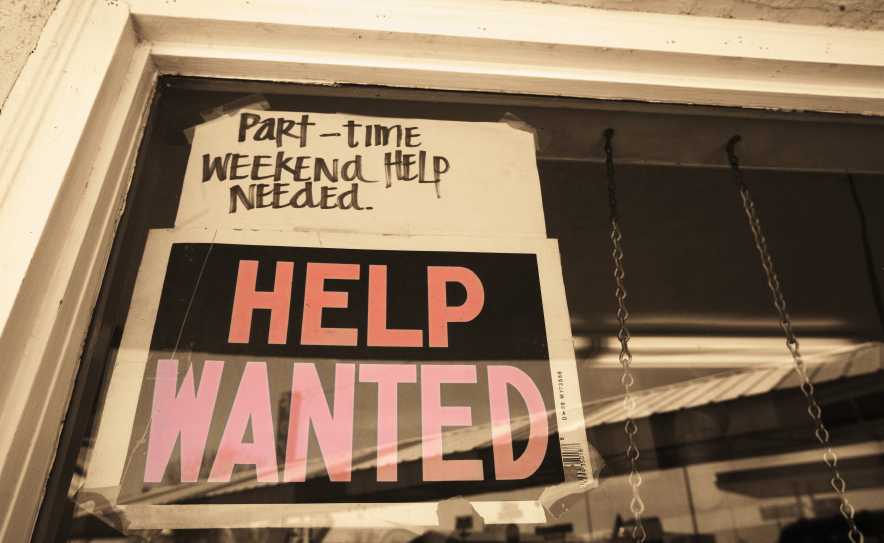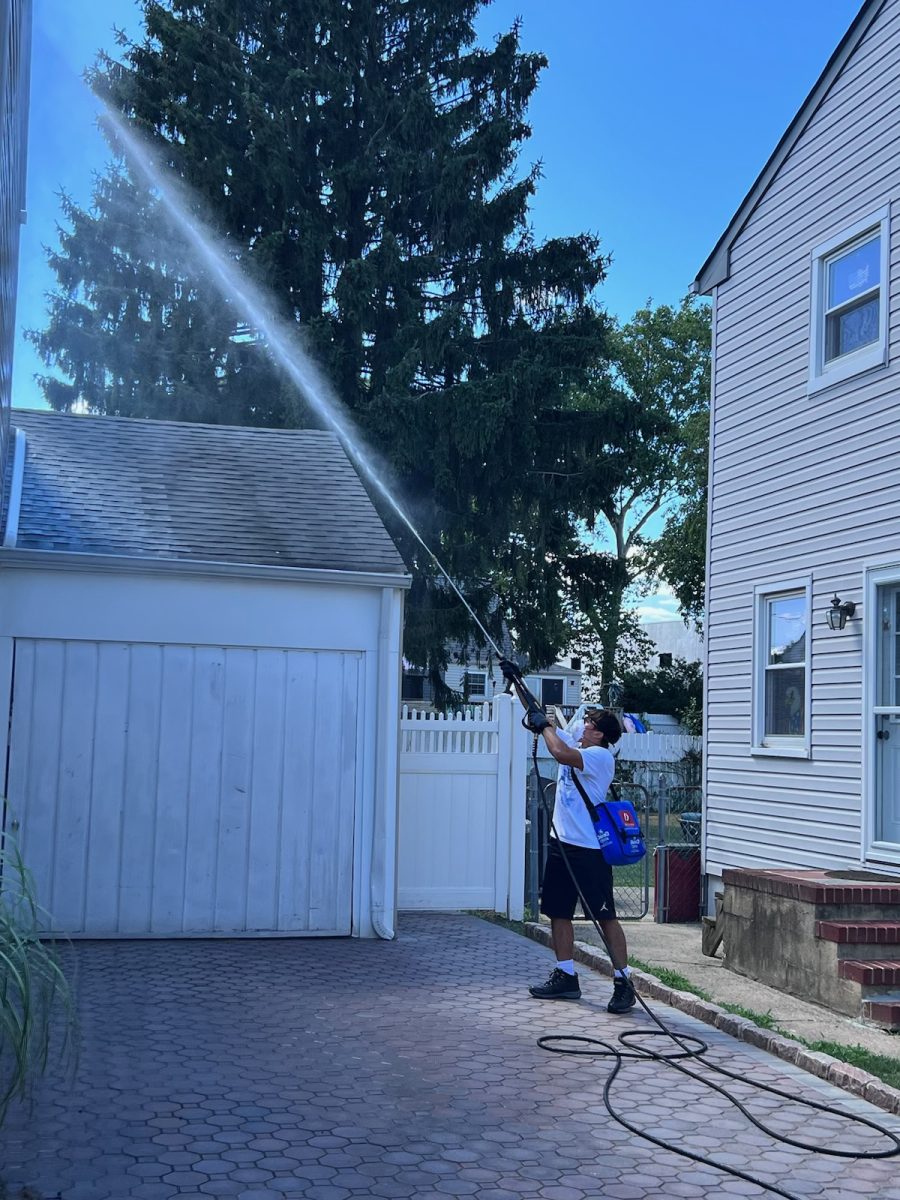Of course teens despise house chores and procrastinate on summer reading yet, here’s another thing that teenagers may not want to do this summer . . . get jobs.
Data released Monday, June 1, 2015 from the outplacement firm Challenger, Gray and Christmas, Inc. revealed that fewer teens scored jobs this summer than last year: Employment among 16- to 19-year-olds grew by 1,297,000 during May, June and July — those are peak summer hiring months — down 4.3% from the same period in 2013, when teen employment increased by 1,355,000. “Summer hiring among teens was slightly lower than a year ago, the report revealed.”
It’s part of an ongoing trend. The number of teens with summer jobs has fallen roughly 30 percentage points since the late 1970s. In 1978, nearly three in four teenagers (71.8%) ages 16 to 19 held a summer job, but as of last year, only about four in 10 teens did, according to data from the Bureau of Labor Statistics for the month of July analyzed by Challenger, Gray & Christmas. It’s been a steady decline, seen even during good times: During the dot-com boom in the late 1990s, when national unemployment was only about 4%, roughly six in 10 teens held summer jobs. Even recently, with the economy recovering, fewer teens opted for jobs: Last year’s summer job gain was down 3% from the summer payrolls in 2012, the report revealed.
What’s more, John Challenger, the CEO of Challenger, Gray & Christmas, says this is a trend that will likely continue. “We’re in a different era,” he says. “Being a teen is different than it used to be.”
Of course, some of this low teen unemployment can be blamed on the lackluster economy. Indeed, teen unemployment is more than 20% (remember that unemployment rates only measure those actively seeking jobs), in part because they are competing for jobs with other groups, including recent college grads and those with work experience.
But that can’t quite explain why fewer teens are working even during periods of economic expansion, said Challenger. He says that teens who are dropping out of the workforce represent only a small portion of those not working; instead, he says, most of these teens are choosing not to work in the summer. Indeed, the teen unemployment rate (which measures teens actively seeking work) has actually fallen from 26.6% in June of last year to 23.9% this June. “This suggests that fewer teens are even seeking summer employment,” writes Challenger. “Indeed, a June participation rate of 40.5 percent is just off the record low for this month, which is 40.3 percent, recorded in June 2010 and again in June 2011.” And last year, there were nearly 11.4 million 16- to- 19-year-olds who were not in the workforce last summer — and of those only about 951,000 (or 8.3%) said they wanted a job, according to data from the Bureau of Labor Statistics that Challenger, Gray & Christmas analyzed. “While the number of 16- to 19-year-olds not in the labor force who want a job has remained relatively flat since the mid-1990s, the number not wanting a job has steadily increased,” the report revealed.
This doesn’t mean that teens are simply tanning by the pool or binge-watching Bravo (though some certainly are). Challenger says that many teens are in summer school (rates of summer school attendance are at one of the highest levels ever, he says), volunteering, doing extracurricular activities to pad their college applications and trying out unpaid internships. And all of these are worthwhile endeavors (well, minus the tanning and Bravo), especially as it becomes more competitive to get into many elite colleges.
That said, experts say that paid work has value for a number of reasons — and that teens (even those who plan to go to college) who don’t do it may be at a disadvantage. “It’s critical for teenagers to work, to begin to understand the working world, the value of a paycheck,” said Gene Natali, co-author of “The Missing Semester” and a senior vice president at Pittsburgh investment firm C.S. McKee. “Choosing not to work a paid job has consequences.”
One clear reason for this, Natali explained, is that the money they earn can be put to good use. The average household with a teenage child has only saved $21,416 for college, according to data released this year from Sallie Mae — far less than the $164,000 that a four-year private college will cost or the $74,000 that a public four-year in-state school will cost. And considering that for every $1 borrowed, the child will have to pay back roughly $2, saving money from a summer job can help offset student loan debt. Plus, working in a tough, low-paying job can motivate students to study harder in college and help them get a job down the road, as many employers want to see that applicants have worked for pay before, said Dan Levin, host of the radio program CPR Radio Show. “It’s valuable experience even well past age 19,” Levin included.
Even if the child gets a full ride to college, she should still start saving now, said Natali. He uses this example: A child who begins saving just $3 a day from age 15 through the age of 25 and then nothing thereafter would end up with a million by the age of 65 in his Roth IRA; if the child waits to start saving $3 per day until age 35 and saves each day until age 65, he will only have about $220,000. Plus, he says, “it’s harder to chase your dreams without the financial freedom to do so.” For example, if a child graduates college and wants to spend a year writing a novel, money earned during his teen years could help fund that so he or she didn’t have to take a full-time job.
What’s more, paid work can look good on a college application, explained Elizabeth Heaton, a college admissions consultant and a former admissions officer at the University of Pennsylvania. “I loved paying jobs when I saw them on applications,” she said. She said the experience can show that students can show up on time, be responsible and do a job they’re hired to do, and deal with adults they aren’t related to.
And since many unpaid internships or volunteer opportunities are only a few days a week, many teens can balance that with a paid job (or better yet, get a paid job that is related to a field they want to study), said Natali.
Another positive to working is the connections and friendships you can make. It is always good to have references to put on a resume when college is done. Sometimes the friendships made at these places of employment can last a lifetime. So, consider working a part-time job over the summer and help your future.











